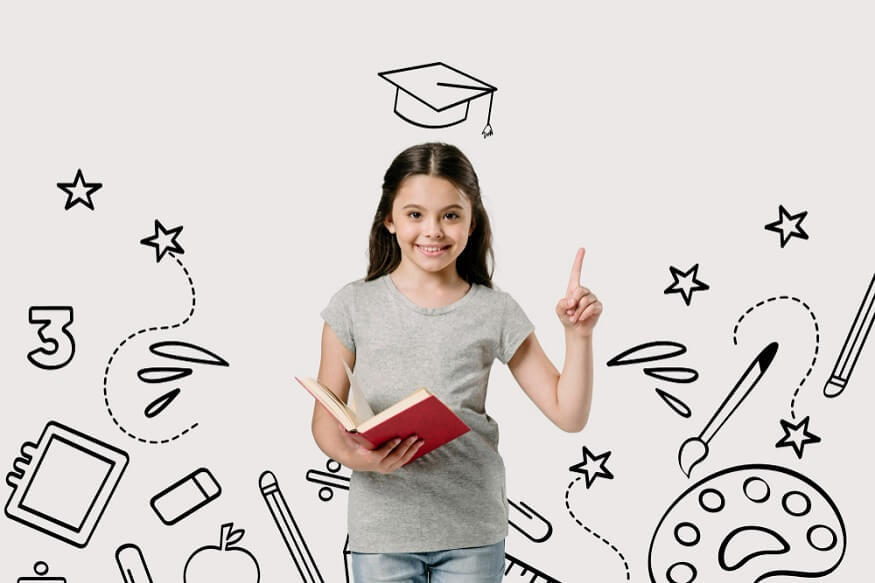Recognising the dynamic nature of learning, the Central Board of Secondary Education (CBSE) has implemented a set of guidelines known as CBSE Students’ Learning Enhancement Guidelines. It is aimed at fostering holistic development and ensuring a meaningful educational experience. This article by EuroSchool delves into the essence of these guidelines, elucidating the learning enhancement for students who do not possess any digital devices.
Learning Enhancement for Students not Possessing any Digital Device
Objectives:
- To reach out to students who do not have any digital devices to provide learning opportunities.
- To provide need-based interventions for enhancing the learning of such children during school closure.
- To provide support for bridging learning gaps with additional interventions when schools reopen.
- To monitor every group of schools – whether government, government aided or private schools affiliated to the state secondary board or any other board – to ensure that no child in the state/UT is left behind.
Target Group of Children with No Digital Learning Device
This group is not homogenous, and may vary in the following factors:
- Age and classes (i.e., younger and older children)
- Distance of their homes from schools(nearby and far)
- Socio-economic status of parents (middle income, lower income or below the poverty line or migrant labourers)
- Educational status of parents (literate or illiterate)
- Language (comfortable in the home language)
- Locality where they are living (open spaces or congested streets)
Also Read: The Evolution of CBSE Curriculum for Primary Education
Learning Plans For Children with No Digital Learning Device
The Central Board of Secondary Education has developed Teacher Energised Resource Material handbooks that will aid teachers in aligning their classroom transactions to a competency framework.
Teachers will need to prepare specific learning plans separately for each of the children in the No Digital Learning Device (NDLS) or Limited Digital Learning Device (LDLD) group.
The learning plans will be based on learning outcomes and need not depend entirely
on textbooks, particularly for primary classes.
By focusing on how the child can achieve learning outcomes, the learning plan can be based on the present situation of the child at home. For example, for a child in grade I, the learning outcome – associates words with pictures – can be easily taught with the use of resources available from or at home such as newspapers, food packets, things at home, TV programmes, nature, etc. All that will be needed is guidance to the parents.
In this manner, weekly, fortnightly, or monthly Learning Plans will need to be prepared for every learner for every grade. For quick assessments, parents and older siblings can be guided. However, some form of worksheet or standard assessment system monthly needs to be devised.
Also Read- What Are The Goals For First Graders In Terms Of Early Reading And Writing
Learning Outcomes
Parents or guardians or siblings or volunteers (in case of parents being illiterate) may be called into the school at staggered times to provide orientation on the use of an alternative academic calendar which is learning outcomes based.
This will give them an idea of the learning outcomes to be covered by the students’ mapping with different themes across subject areas.
They may also be guided on how some of these learning outcomes may also be covered simply by interacting with children e.g., on food, work they do, shelter, agriculture, their daily and monthly expenditure, etc., and also conducting activities related to a day-to-day routine of the child.
Specific interventions for Foundational learners:
Theme-wise activities and also guidelines for improving foundational literacy and
numeracy skills for foundational learners are given in the Alternative Academic Calendar
developed by the NCERT.
Parents/Guardians or Volunteers may be called to the school for an orientation on conducting activities with children on foundational literacy and numeracy skills.
Parents/Volunteers may be guided on creating cards using hard paper/cardboard/waste
cartoons for children, by making diagrammatic representations of numbers or alphabets or
words on it. Through playing the method, they can create interest in children to learn the same.
The school needs to collect some interesting pictures and storybooks from the community or parents of older children, which may be distributed to parents of foundational learners for developing interest and habit of reading.
Parents of Foundational years – classes 1, 2 and 3 – may be specifically instructed that the child must get into the habit of reading and basic numeracy such as counting, adding, subtracting etc. during this period. If the skill of reading and basic numeracy is lost during this period, the child may lose out on learning in the later years.
Parents of children in classes 4 and 5 may also be guided to focus on reading, reading
with comprehension and numeracy skills. Parents may be guided that reading is not limited to only the textbook. This period should be utilised by them to expose the child to reading and reading with comprehension from various sources – newspapers, TV, packaged goods, posters and public advertisements, parent’s accounting diaries/journals, pamphlets, etc.
Also Read: A Comprehensive Guide to CBSE Syllabus for Class 1-5
Identifying key Learning Outcomes to be focused upon
Parents or Volunteers may be guided by the school heads or teachers about the activities through which reading speed, reading with comprehension and basic calculation competencies may be enhanced. For example – Children in classes 3-5 may be given a target to improve their reading speed (using their language textbook) in 3-5 attempts using a stopwatch (simple watch or clock as well).
Children of class 2 can aim to read about 35-50 words per minute with comprehension. By class 8 they should try to read more than 150 words per minute.
For reading comprehension, they may be asked to tell a story in their language, which they have read from a book (storybook or language textbook or from a magazine or newspaper).
For basic calculation, they may be asked to make a list of items purchased for use at home in the last two days and calculate the total expenditure incurred for that.
With children of classes 1 and 2, the use of fingers, pebbles or other objects may be promoted for doing basic additions and subtraction.
For EuroSchool, the journey towards enhancing student learning becomes a collective endeavour, shaping the future of education in India.











